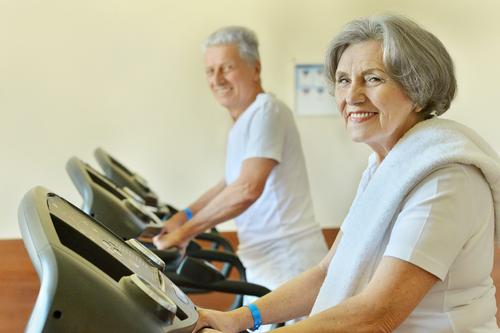see all jobs
Could exercise be used to treat breast cancer?
Exercise can slow the growth of breast cancer tumours in mice, according to research published in the Journal of the National Cancer Institute.
One way that cancers grow resistant to treatment is by generating a jumbled web of blood vessels which stop oxygen getting to the tumour. When starved of oxygen, the tumour is protected from chemotherapy drugs and radiation, as these treatments are designed to seek out well-oxygenated tissue.
Researchers have tried many different approaches to improve blood flow to tumours, but exercise has proved to be the most promising by far.
“We could not have guessed it would be as effective as it was,” says co-senior author, Mark W Dewhirst. “I have spent the better part of the last 30 years trying to figure out how to eliminate hypoxia in tumours and have looked at a lot of different approaches: drugs, hyperthermia and metabolic manipulations. None has worked very well, and in some cases, made things worse. So these findings with exercise are quite encouraging.”
The researchers used two different models of breast cancer cells and implanted them in mice and then assigned the animals to exercise (running on a wheel), or remaining sedentary.
Tumour growth was significantly slower in animals that exercised than sedentary mice and tumour cell death was 1.5 times higher.
Researchers also tested if exercise would improve the efficacy of the chemotherapy drug, cyclophosphamide. Animals were randomised into four groups: sedentary, exercise alone, cyclophosphamide alone and exercise and cyclophosphamide.
The rate of tumour growth was significantly lower in mice treated with exercise and cyclophosphamide, compared to other groups.
Also significant, tumour growth was delayed in both the exercise alone and cyclophosphamide alone groups, with no difference in the tumour growth rate suggesting that, in this study, exercise was as effective as chemotherapy.
On the basis of these findings, studies are being designed to test whether exercise can inhibit tumour growth and the risk of recurrence in humans.
More News
- News by sector (all)
- All news
- Fitness
- Personal trainer
- Sport
- Spa
- Swimming
- Hospitality
- Entertainment & Gaming
- Commercial Leisure
- Property
- Architecture
- Design
- Tourism
- Travel
- Attractions
- Theme & Water Parks
- Arts & Culture
- Heritage & Museums
- Parks & Countryside
- Sales & Marketing
- Public Sector
- Training
- People
- Executive
- Apprenticeships
- Suppliers
















































